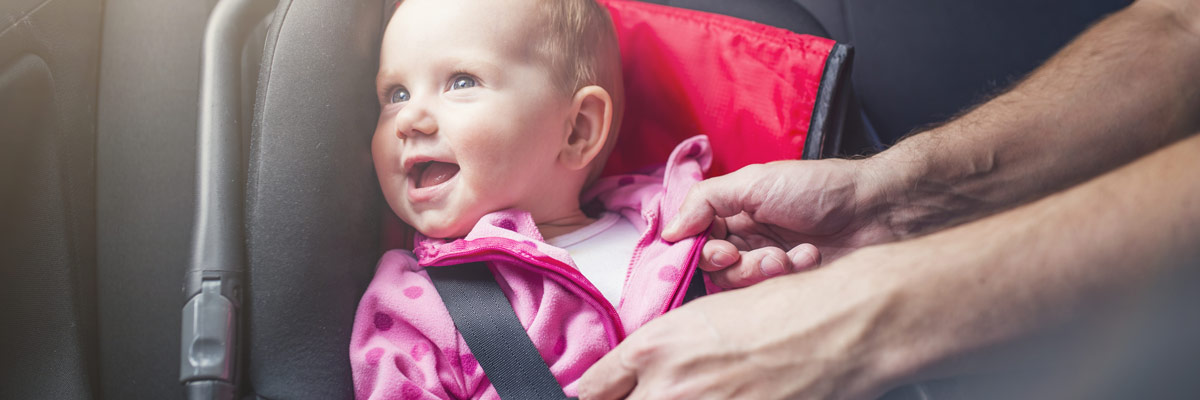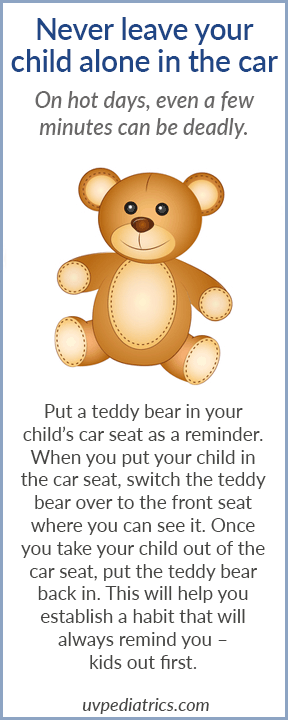
Article at a Glance
In Utah it is a class C misdemeanor, punishable by a $750 fine and up to 90 days in jail, to leave your child unattended in the car.
This was mostly meant to be a deterrent for parents who might think they can leave their child in the car for a few minutes while they run an errand.
But children are often left in the car not because their parents meant to, but because they forgot they were in there.
It seems unbelievable that parents could forget their children–leaving them in such a dangerous situation–but it actually has to do with how our brains handle and prioritize our memory.

In 2019, there were 52 pediatric vehicular heatstroke deaths, bringing the total number of pediatric vehicular heatstroke deaths to 850 since 1998.
Although you would never purposefully expose your child to danger, many are not aware of just how quickly the inside of a car can heat up.
A child’s body overheats 3 to 5 times faster than an adult’s, and it can take just minutes for the inside of a car to reach 125 F, even with the windows cracked open.
Leaving your baby in the car on a hot day for even a few minutes is enough to cause heatstroke.
According to Dr. David Diamond, a professor of Psychology, Molecular Pharmacology and Physiology, we all have a prospective memory system and a habit memory system.
The prospective memory system resides in the parts of the brain that allow for the storing of new information and making plans. We use this system to plan and carry out actions.
The habit memory system is based in the part of the brain that allows us to automatically perform repetitive tasks.
This allows us to do routine things like tying our shoes and riding a bike without even thinking about it. When we drive home or to work a certain way every day, this becomes a repetitive task and our habit memory system takes over. When the habit memory system is activated, it can often suppress the perspective memory system–especially if we are tired, distracted, or stressed.
For example, dad is asked to drop Junior off at daycare on his way to work. It is not part of his routine, so his prospective memory system kicks in as he plans how to get there.
But while traveling the familiar route to work, his habit memory system recognizes the routine and suppresses the prospective memory system. If Junior falls asleep on the way there and is quiet, dad doesn’t get any cues that his son is still back there. There is a chance he might get to work, park his car, and go to his office, forgetting his son is even in the car.
Unfortunately, things like this happen to wonderful parents all the time. We have all probably had similar moments where we plan to get gas on the way home, but get so immersed in the routine of driving home that we completely forget to make the stop. We are all susceptible to this kind of memory failure.
According to the National Highway Traffic Safety Administration (NHTSA) there are a number of precautions you can take so that you don’t unintentionally leave your child in the car.

As a pediatrician and father of six kids, Dr. Bartholomew has a lot of experience with twins and premature infants. In addition to getting to know his patient families, he enjoys the great outdoors, Dr. Seuss, and BYU football.